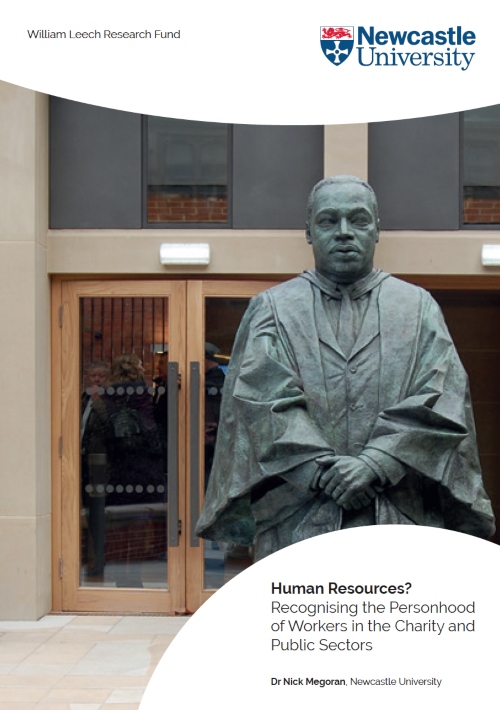Dignity in the workplace?
Traditional practices of ‘Human Resource Management’ are actually counter-productive, but there are a range of positive practices that workplaces can adopt to help create humanity-affirming workplaces, says new report
 A new report into whether workplaces are humanity-affirming or dehumanising has been launched. Based on pioneering research into public and charity sector employees conducted at Newcastle University, it finds that many traditional practices of ‘Human Resource Management’ are actually counter-productive. It highlights a range of positive practices that workplaces can adopt to help create humanity-affirming workplaces, and asks what the modern workplace can learn from the church.
A new report into whether workplaces are humanity-affirming or dehumanising has been launched. Based on pioneering research into public and charity sector employees conducted at Newcastle University, it finds that many traditional practices of ‘Human Resource Management’ are actually counter-productive. It highlights a range of positive practices that workplaces can adopt to help create humanity-affirming workplaces, and asks what the modern workplace can learn from the church.
The report, entitled Human Resources? Recognising the Personhood of Workers in the Charity and Public Sectors, has been written by Newcastle University Reader in Political Geography, Dr Nick Megoran, a member of Heaton Baptist Church in Newcastle. Although there have been many previous studies into the welfare, health and rights of workers, this is the first that explicitly focuses on the more fundamental question of what it means to treat workers as proper human beings. The report asks whether people are treated as commodities under ‘human resource’ management regimes, or as beings created, as the Christian tradition has it, ‘in the image of God.’
With support from the William Leech Research Fund, The Church of England and the Northern Baptist Association, Dr Megoran interviewed more than 60 North East academics, school teachers and church leaders, as well as HR managers. Workers in these three fields are generally highly motivated because they have a strong sense of vocation - that their work is inherently important for society. Many people in fact take significant salary cuts to enter these professions.
Being intrinsically motivated has significant impacts for how they are managed. The report identifies eight aspects of what Megoran calls ‘highly-humanising workplaces’: for example, that people are given the freedom and autonomy to do jobs they have a sense of vocation for, and that their commitment to wanting to make a difference is respected. It raises thorny questions such as universities’ over-reliance on staff on precarious contracts, how schools handle the dreaded ‘Ofsted’ inspections, and how hostile congregations can make churches toxic places for their ministers.
At the same time, the research found that the presence or absence of ‘cultures of care’ is significant, and points to good practices that staff, church congregations and lay leadership teams can pursue to help ensure that their workplaces are experienced as humanity-affirming.
The research was inspired by Martin Luther King Jr’s belief that the biblical doctrine of creation ‘imago Dei’ needs translating into practical treatment of each other. King believed that everyone was made in God’s image and was therefore worthy of dignity. The report asks: what does this look like in the workplace?
Dr Megoran is also an Honorary Chaplain at Newcastle University, and a member of Heaton Baptist Church, Newcastle.
Baptist Times, 10/07/2019